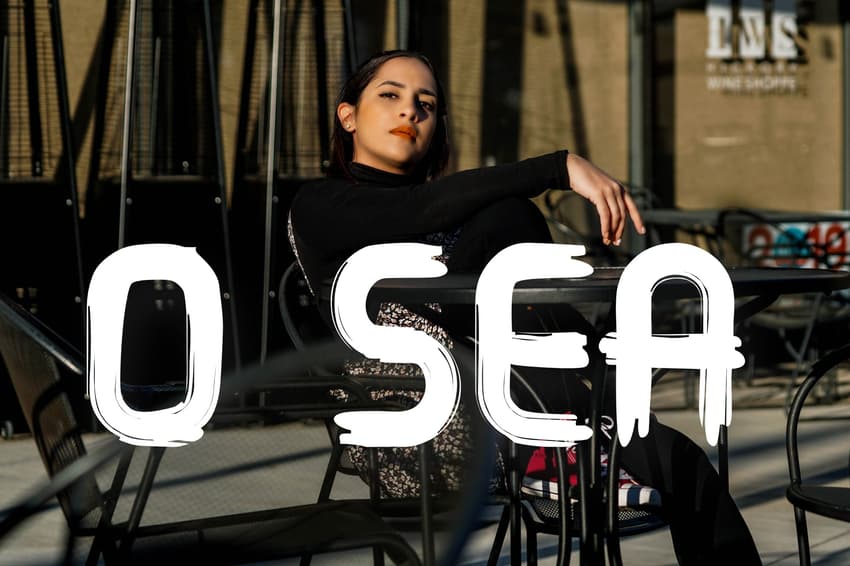Spanish Word of the Day: O sea

Spaniards sprinkle this interjection into daily speech more than paprika on their paella, so what exactly does it mean?
O sea is used in Spanish to say ‘I mean’, ‘or rather’ or ‘in other words’.
It’s a bit like many English speakers say ‘like’ all the time as an interjection when they’re trying to explain something, but they're not aware of how often they say it.
O sea is used to clarify something that’s just been said or to introduce an explanation for what’s being said.
It’s considered informal; more ‘so’ than ‘therefore’, but it's not inappropriate in any social context.
You’re more likely to encounter it in spoken Spanish than in written, where es decir, por lo tanto, así pues or por consiguiente would be more appropriate.
Women tend to use o sea more than men, and for some reason it’s come to be associated with pijo (posh) talk in Spain, as in something more pretentious affluent women say in Spanish when talking to their ‘girls’.
But that’s got more to do with the way pijos say it and how much they overuse it, as o sea is widely used by all types of Spaniards.
Incorporating o sea into your spoken Spanish will make you sound more fluent, because just as it’s the case that the use of ‘like’ as an interjection is far more common in native English speakers, the same applies to o sea.
Examples:
O sea used like ‘I mean’:
Estás borrachísimo, o sea, ni loco te invito a casa de mis padres.
You’re very drunk, I mean, there’s not a chance I’m inviting you to my parents’ house.
O sea used like ‘or rather’:
¿Me pones un café? O sea, mejor que sean dos.
Can I have a coffee? Or rather, make it two.
O sea used like ‘in other words’:
Está lloviendo a cántaros, o sea que los planes de playa se han cancelado.
It’s raining cats and dogs, in other words the beach plans have been cancelled.
O sea used like ‘so’:
O sea, que no me vas a dar el trabajo?
So you’re not going to give me the job?
O sea being overused like a posh person:
El viaje, o sea, fue una auténtica pasada, o sea, lo hemos pasado super guay.
The trip, I mean, was an absolute blast, I mean, we had such a super time.
Comments
See Also
O sea is used in Spanish to say ‘I mean’, ‘or rather’ or ‘in other words’.
It’s a bit like many English speakers say ‘like’ all the time as an interjection when they’re trying to explain something, but they're not aware of how often they say it.
O sea is used to clarify something that’s just been said or to introduce an explanation for what’s being said.
It’s considered informal; more ‘so’ than ‘therefore’, but it's not inappropriate in any social context.
You’re more likely to encounter it in spoken Spanish than in written, where es decir, por lo tanto, así pues or por consiguiente would be more appropriate.
Women tend to use o sea more than men, and for some reason it’s come to be associated with pijo (posh) talk in Spain, as in something more pretentious affluent women say in Spanish when talking to their ‘girls’.
But that’s got more to do with the way pijos say it and how much they overuse it, as o sea is widely used by all types of Spaniards.
Incorporating o sea into your spoken Spanish will make you sound more fluent, because just as it’s the case that the use of ‘like’ as an interjection is far more common in native English speakers, the same applies to o sea.
Examples:
O sea used like ‘I mean’:
Estás borrachísimo, o sea, ni loco te invito a casa de mis padres.
You’re very drunk, I mean, there’s not a chance I’m inviting you to my parents’ house.
O sea used like ‘or rather’:
¿Me pones un café? O sea, mejor que sean dos.
Can I have a coffee? Or rather, make it two.
O sea used like ‘in other words’:
Está lloviendo a cántaros, o sea que los planes de playa se han cancelado.
It’s raining cats and dogs, in other words the beach plans have been cancelled.
O sea used like ‘so’:
O sea, que no me vas a dar el trabajo?
So you’re not going to give me the job?
O sea being overused like a posh person:
El viaje, o sea, fue una auténtica pasada, o sea, lo hemos pasado super guay.
The trip, I mean, was an absolute blast, I mean, we had such a super time.
Join the conversation in our comments section below. Share your own views and experience and if you have a question or suggestion for our journalists then email us at [email protected].
Please keep comments civil, constructive and on topic – and make sure to read our terms of use before getting involved.
Please log in here to leave a comment.